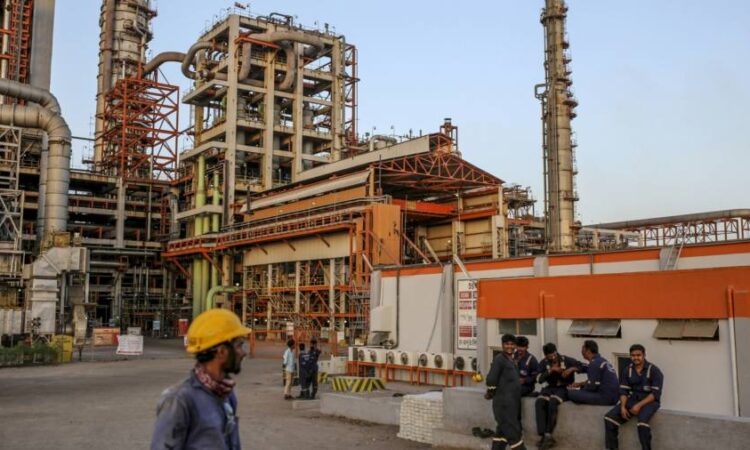
The banking sector turmoil that has spilled into energy and metal markets is likely to be limited in duration with only minimal damage to the wider economy, according to some of the world’s biggest commodity traders.
Sebastian Barrack, head of commodities at Citadel, the world’s most successful hedge fund that at times invests heavily in energy and agriculture markets, said the impact was likely to be contained with fundamentals reasserting themselves once the immediate panic passed.
“There is emotion and fear, which can drive markets in the short term,” he said on Monday on the sidelines of the FT Commodities Global Summit.
“But this is not a repeat of the great financial crisis of 2007-2008. We don’t believe this will have a material impact on commodities demand like we saw in those years.”
In 2008 oil prices crashed from almost $150 to nearly $30 a barrel in a matter of months as the deep recession caused by the financial crisis hammered demand. Metals and other commodities also fell sharply.
Commodity prices have been under pressure in the last week as instability in corners of the global banking system has sparked fears of further contagion.
Brent crude oil, the international benchmark, has fallen about 10 per cent in the last week, hitting a low of $70.12 a barrel on Monday morning shortly after UBS’s government-backed takeover of Credit Suisse — the lowest price level since Russia’s full-scale invasion of Ukraine. European gas prices also fell below €40 per megawatt hour for the first time since 2021.
Trafigura, one of the world’s largest energy and metals traders, also said that while nervousness could seep across markets in the short term, the company did not see a significant risk of further contagion, like in 2008.
“Famous last words, but so far it doesn’t feel like we’re in that situation,” Saad Rahim, chief economist at Trafigura, told the conference.
However, Guillaume de Dardel, head of energy transition metals at Switzerland-based commodity trader Mercuria, said the financial environment and high interest rates could have a knock-on effect on energy transition projects.
“The environment we’re in is turning towards a more risk-off type of environment. Certainly on the financing side for projects, this will make it harder, when it is very much required if we want the transition to work.”
Barrack at Citadel said he expected natural gas prices to remain under pressure, but with oil probably rising in the second half of the year.
“European prices would have fallen below €40 per megawatt hour even without the current situation in markets — natural gas is bearish, in both Europe and North America, as we’ve had a mild winter and have an oversupply.
“The second half of this year still suggests a significantly tightening [of the oil] market as the Opec+ [production] cuts feed through and demand continues to rise.”
Oil prices stabilised later on Monday, with Brent trading back nearly $73 a barrel, with many traders predicting the market was set to tighten as US shale growth slows and Chinese demand picks up as its economy reopens.





